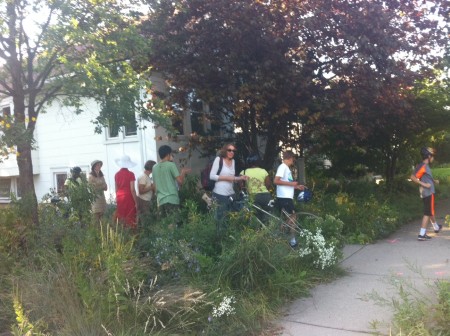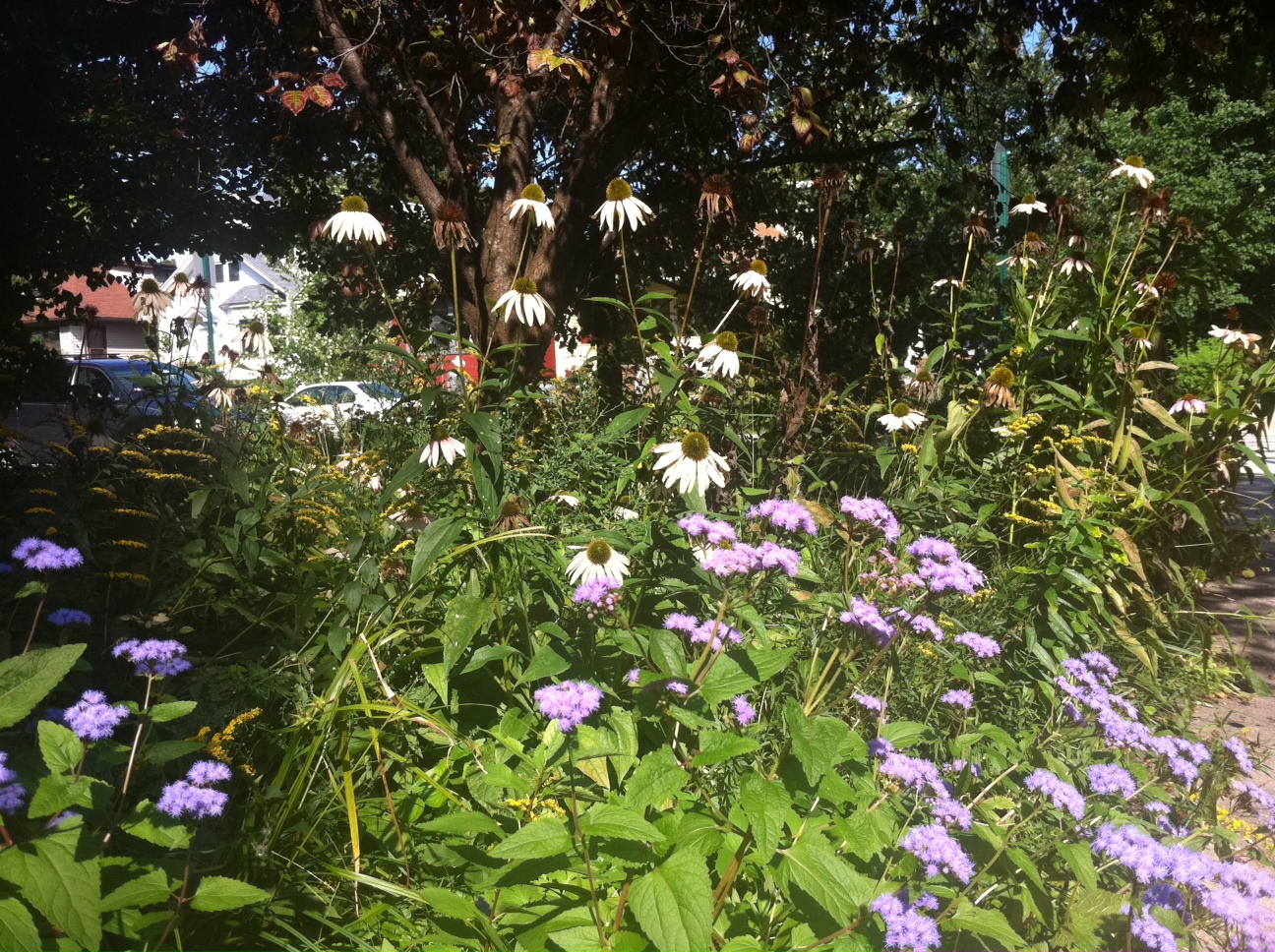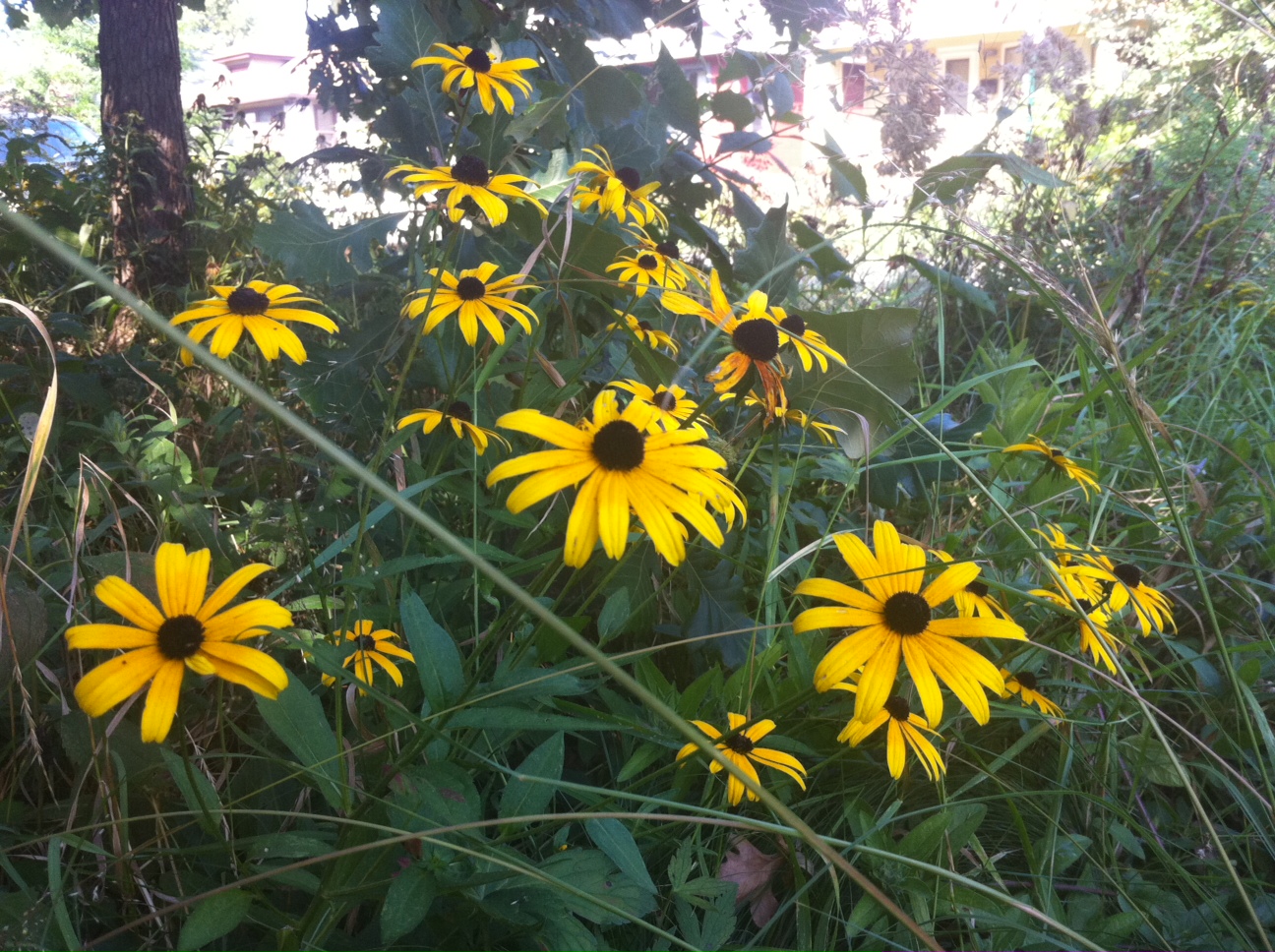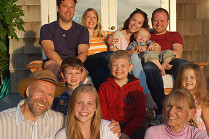Throughout the fall: Programs that repeat
“Woodpecker Hollow” Nature Play Area:
Balance on logs and build with sticks as you experience unstructured playtime in our nature play area. Every day
Bone Appétit
Join us at feeding time to learn about Trailside’s outdoor resident animals: Monday, September 1; Sunday, September 13; Sunday, October 12; Sundays, November 8 & 22; Tuesday, November 11; Saturday, November 30 • 1 pm
Nature Story Time
Nature-inspired stories followed by a craft. Ages 3-6 with adult. $1 per child.: Thursdays, September 4 & 18; October 2 & 16; November 6 & 20 • 10:30 am
Dog Days Walks
Bring your well-mannered, leashed dog on a one-hour guided hike on our trails. Call to register by 2 days prior. Saturdays, September 20, October 18, November 15 • 10 am
Autumn Walks
Explore the changing seasons on a guided walk along our trails and around the pond. Call to register by 2 days prior. Sundays, September 28, October 5 & 19, November 2 & Monday, October 13 • 1 pm
Weekday Nature Walk
Join us as we explore our local trails near Trailside Museum: Tuesdays, September 30, October 28, November 25 • 1 pm
Homeschool Connections
Join other homeschoolers to learn about local nature. Limited space available; register at least 2 days prior to each session. Must be accompanied by adult.
Tree Ecology Learn about trees many important roles in our ecosystems, and learn to identify some of our local trees. Children ages 8 & up; Wednesday, September 24 • 2 – 3:30 pm
Migration Beyond Borders
Learn the migration stories of birds, insects and reptiles connecting to habitat preservation. Children ages 8 and up. Wednesday, October 22 • 2 – 3:30 pm
Ready for Winter
Learn about different animals’ strategies for surviving seasonal changes in order to prepare for winter. Children ages 8 and up. Wednesday, November 19 • 2 – 3:30 pm
Conservation History Series
Join interested adults and teens to learn about our leaders in conservation. Limited space available; register at least 2 days prior to each session.
Conservation in America: Explore the ideas and practice of conservation from before Thoreau to 21st century conservation biology. Wednesday, September 17 • 7 pm
Origins of the Forest Preserves: Learn how the nation’s first forest preserves were created in a time of great social change. Wednesday, October 1 • 7 pm
Leaders in Conservation: Aldo Leopold, Learn about the man many believe to be the father of the conservation ethic.Wednesday, November 19 • 7 pm
September
Start Your Nature Journal
Learn and practice tips for starting or enhancing your journal, from pen and paper as well as your favorite smartphone apps. For adults and interested teens; bring your favorite technology if you like. Registration required by 9/4, $15.00/person includes take-home materials. Saturday September 6 • 1 pm
What Leaf Is That? Tree ID for Young People: Enjoy a short nature walk and learn easy ways to identify some trees by leaf, bud, bark and fruit. Children ages 7 – 14, w/adult. Registration required by 9/5. Sunday, September 7 • 1 pm
Killer Plants and Murderous Mushrooms: Learn how some plants and fungi defend themselves, and then follow a naturalist in search of examples in our preserves. For adults and youth 12 and up; registration required by 9/12. Sunday, September 14 • 1 pm
Animal Olympics: Can you leap as far as a frog, or spear fish like a heron? Test your human abilities against amazing animal adaptations. Drop-in family program. Sunday, September 21 • 1 – 2:30 pm
The Endless Garden - Seed Saving: Learn how and when to save and store seeds from your garden plants for next year’s growing season. For adults; register by 9/25. Saturday, September 27 • 1 pm
OCTOBER
Fungus Among Us Learn about some common autumn mushrooms then enjoy a short hunt for local examples. For adults & interested teens. Registration required by 10/2. Saturday October 4 • 1 pm
Tree Identification Workshop: In this indoor/outdoor workshop we will discuss features of local trees used for tree identification, such as bud and leaf shape, habitat and bark. Adults & interested teens. Registration required by 10/9. Saturday, October 11 • 1 pm
An Evening at Trailside
Get up close and personal with your neighborhood nature center. Sample a variety of educational programs and crafts, chat with your local naturalists and get an up close view of our entire mammal furs & skulls collection. A rare “behind-the-scenes” program will show you how we prepare food for our display animals.
Friday, October 24 • 5 – 8 pm
Photo Meet-Up at Trailside: Photographers of all skill levels are welcome to enjoy a one-hour tour of Trailside Museum and Thatcher Woods, highlighting the autumn color, scenic vistas and locations frequented by wildlife. During and after, photographers are free to get their best nature shots! Saturday, October 25 • 10 am
The Eyes Have It Drop-In Learn how other animals see: from snake eyes that never close to the compound eyes of insects. Drop-in family program. Sunday, October 26 • 1 – 2:30 pm
NOVEMBER
What Does the Coyote Say? Bark, howl or yip…discover what the coyote really says and visit with Trailside’s resident coyote. Saturday, November 1 • 1 pm
On the Trail of the White-tailed Deer The white-tailed deer is the largest mammal in Illinois. Join us as we explore the natural history of this native animal. Drop-in family program. Sunday, November 9 • 1 – 2:30 pm
Nature Sketching Explore line, value, shading and form as we practice sketching plants and animals from life. Register by 11/13. $15 materials fee includes take-home artist’s tools. Sunday, November 16 • 1 pm
Skull Detectives - The Mystery of the Missing Lunch Use the clues from real skulls to figure out which animal stole the missing lunch. Drop-in family program. Sunday, November 23 • 1 – 2:30 pm
Turkey Trot Hike Walk off that turkey dinner on a special post-holiday guided hike of the trails around Trailside Museum. Registration required by 11/26. Friday, November 28 • 1 pm
The Flying Meat-eaters: Hawks, Owls, Falcons & Vultures Drop in to learn about the life history of the carnivorous birds of our area. Family drop-in program. Saturday, November 29 • 1 - 2:30 pm
Trailside Museum, Forest Preserves of Cook County, 738 Thatcher Ave, River Forest, IL 60305, (708) 366-6530









 "I requested that the village buy the tree from Possibility Place Nursery, which specializes in native plants that are local ecotypes," says Douglas. Local ecotypes are plants that were propagated from parent plants that have been growing in our specific area for hundreds or even thousands of years. Today, his well-adapted bur oak has a graceful structure and is healthy and vigorous.
"I requested that the village buy the tree from Possibility Place Nursery, which specializes in native plants that are local ecotypes," says Douglas. Local ecotypes are plants that were propagated from parent plants that have been growing in our specific area for hundreds or even thousands of years. Today, his well-adapted bur oak has a graceful structure and is healthy and vigorous. Along the sunny, south side of his home, Douglas has built a prairie in the parkway. Purple prairie clover, several aster species, prairie dock and a variety of grasses and sedges smile at the sun.
Along the sunny, south side of his home, Douglas has built a prairie in the parkway. Purple prairie clover, several aster species, prairie dock and a variety of grasses and sedges smile at the sun. Native habitats need to be burned so they can stay healthy, seeds can germinate and weeds stay under control. Douglas worked with the Village of Oak Park two years ago to change local ordinances. Now residents who go through an application process and obtain proper permits can burn their native landscape yards.
Native habitats need to be burned so they can stay healthy, seeds can germinate and weeds stay under control. Douglas worked with the Village of Oak Park two years ago to change local ordinances. Now residents who go through an application process and obtain proper permits can burn their native landscape yards.



